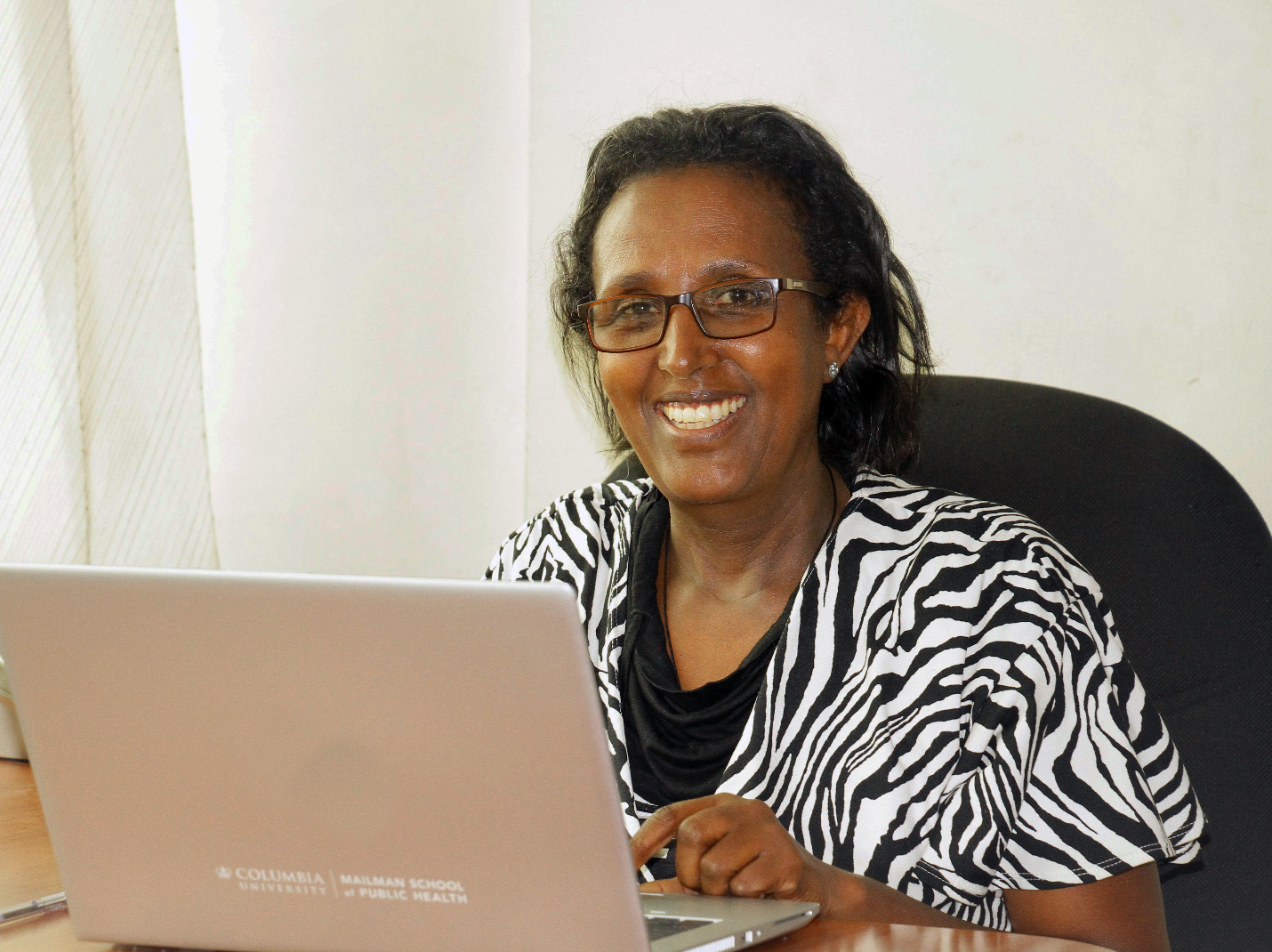With the expansion of large-scale HIV prevention and treatment efforts, the last decade has seen huge progress in the reduction of new HIV infections among newborn infants around the world. However, significant challenges remain to protect young people from HIV infection and related illness. Peer support advisors like ICAP’s Yewubdar Mandefro in Ethiopia provide important holistic care to young people living with HIV as they navigate the challenges of coming to age and protecting themselves and their loved ones from HIV.
As an adolescent and youth peer support expert, Mandefro uses her training at the intersection of clinical nursing, public health, and sociology to empower adolescents enrolled into HIV care with the resources they need to achieve their hopes and dreams throughout their HIV treatment journey. She works in partnership with local clinics, health centers, and teenagers on treatment for HIV to create a supportive, age-appropriate service environment in order to help adolescents stay in care and take ARVs as prescribed so that each patient can have an undetectable viral load.
These critical efforts are part of ICAP’s Operation Triple Zero program, which provides youth-centered services in seven high-load hospitals in Addis Ababa City Administration and Gambella regions. Headed by Mandefro, the program, provides a combination of psychosocial and clinical support to 1,431 adolescents living with HIV since 2019. Thanks to the determined efforts of Mandefro and her team, the viral suppression rate among the youth who participated in the OTZ program has increased from 79% in 2019 to 98% in 2021.
For Mandefro, her work with ICAP in Ethiopia is ‘soul-enriching’ and she loves nothing more than watching the young people receiving support through the program lead healthy, full lives despite their HIV-positive status. She works to develop a close relationship with each of enrolled young person– working in close partnership with them to build an HIV treatment plan tailored for each individual’s unique situation.
Prior to her current work providing support to adolescents on treatment, Mandefro applied a similar holistic approach for women of reproductive age living with or at-risk of HIV infection to maintain their health and stop their infants from acquiring HIV. Driven by a deep concern over rising rates of infants contracting HIV perinatally in Ethiopia, she worked as a support group advisor, to ensure that young mothers who were HIV positive were empowered to prevent HIV transmission to their children during pregnancy, childbirth, and breastfeeding.
Reflecting on her years of experience providing comprehensive support to people on treatment, Mandefro said: “Children and adolescents living with HIV often face unique yet complex physical, emotional, psychological, and social challenges,” she explains. “Providing ART should not be considered as an end result by itself. Unless people on treatment are supported socially and psychologically, standalone efforts alone may not pay off.”
About ICAP
A major global health organization that has been improving public health in countries around the world for nearly two decades, ICAP works to transform the health of populations through innovation, science, and global collaboration. Based at Columbia Mailman School of Public Health, ICAP has projects in more than 30 countries, working side-by-side with ministries of health and local governmental, non-governmental, academic, and community partners to confront some of the world’s greatest health challenges. Through evidence-informed programs, meaningful research, tailored technical assistance, effective training and education programs, and rigorous surveillance to measure and evaluate the impact of public health interventions, ICAP aims to realize a global vision of healthy people, empowered communities, and thriving societies. Online at icap.columbia.edu








